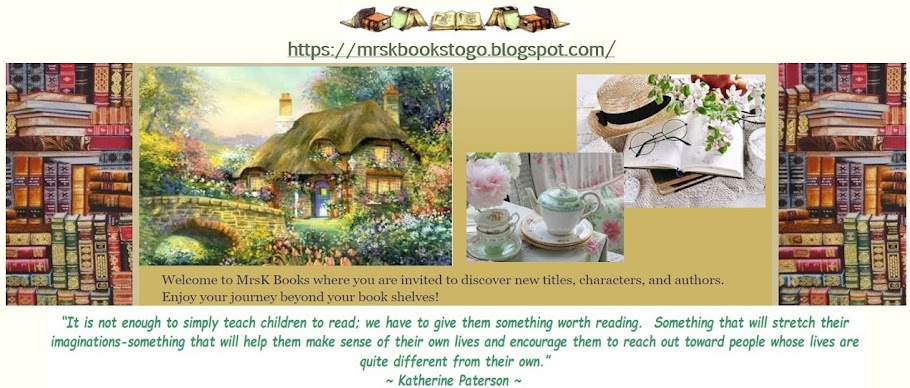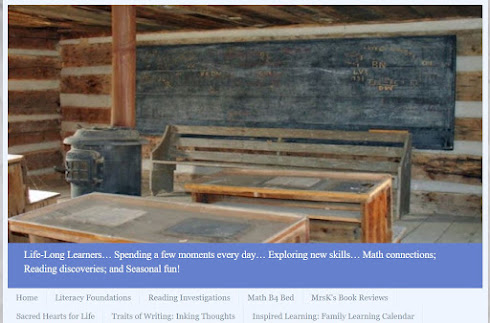ISBN: 9781616203597
Publisher Synopsis:
Other than knowing that
Communism was bad, that it was the opposite of America, I didn’t really know
much else. Now my teacher said I was a Commie because my Dad was one. Dad was
always talking up America to us, how great and important it was. Absolutely, he
wasn’t a Red. But if he was a Red, did that make me one?
It’s 1951, and
twelve-year-old Pete Collison is a regular kid in Brooklyn, New York, who loves
Sam Spade detective books and radio crime dramas. But when an FBI agent shows up at Pete’s doorstep accusing his
father of being a Communist, he finds himself caught in a real-life mystery.
Could there really be Commies in Pete’s family? At the same time, Pete’s
classmates turn against him thanks to similar rumors spread by his own teacher;
even Kat, Pete’s best friend, feels the pressure to ditch him. As Pete follows
the quickly accumulating clues, he begins to wonder if the truth could put his
family’s livelihood—even their freedom—at risk.
In the tradition of Who Was That Masked Man, Anyway?, Don’t You Know
There’s a War On?, and Nothing But the Truth, Avi’s new novel, Catch You Later, Traitor, tells a
funny, insightful story packed with realistic period detail of a boy in mid-20th
century America. Its unique look at what it felt like to be an average family caught
in the wide net of the Red Scare has powerful relevance to contemporary
questions of democracy and individual freedoms.
MrsK's Review:
Historical fiction can be so revealing about who you are vs. who you might think you are. Historical fiction is like looking at yourself in a mirror. There are so many chances to ask your self what you would say or do if faced with the same challenges, situations, personalities, or moral dilemmas that characters in Historical fiction face.
Pete has been verbally badgered by students at school all because his teacher made a slanderous remark about his father to other parents. That in itself is ethically wrong. Yet, those parents have now planted their prejudices and fears into their children, empowering them to become bullies without justification. This novel will not only open your eyes as to how quickly "negative" judgements can take on a life of it's own, it will also serve as a reminder about how we must always be on guard as to not repeating past injustices.
Take a moment to ponder what it was like in America when so many people began accusing family members, neighbors, co-workers, people who served you in everyday business transactions, as well as Hollywood stars and government officials of being communists. What would you do if your best friend betrayed you? How would you feel if your parent was questioned or taken away without any real evidence? We can look back in history and know how that type of "poisonous thinking" destroyed lives in so many countries. And yet, today we should be discussing what history begs us not to forget or repeat.
Meet Pete who loves all aspects of detective reasoning (books, radio programs, real-life news lines). He wants to be a "hard-boiled detective," and he believes "that a detective with nothing to detect is like a fish living in a tree." He isn't a fool who blindly accepts the gossip or behaviors of others. He's not deterred if research means investing some time or effort into tracking down the truth. He lives in a time where respect is expected and knows that to question or accuse an adult would bring shame upon his family. His father teaches American History at an area college. His mother is a guidance counselor in a Brooklyn school. His older brother is into aeronautics. Since they live in Brooklyn...they are Brooklyn Dodgers "true-blue" fans. Pete knows he doesn't have too many options when it comes to the burden of clearing his father's name. Will Kat help him?
Meet Kat, the best friend who is always supportive of Pete. They have been inseparable for what seems like forever. Kat's own mother said, "they were back and forth between apartments so much, it was hard to know who lived where." Imagine what it would be like to find out that your father, teacher, and school mates all believe that your best friend's father is a traitor to America. In your heart you know they can't be. It hurts to hear others bulling your best friend, but you don't know how to help or what will happen if you do. How far would you go to "stand" with your friend?
Meet Mr. Donovan, Pete and Kat's teacher. Is he really on the "hunt" for communists in his community and amongst the parents of his students? What did he mean when he said, "Fortunately, there are people in government, the Congress, the FBI--I have FBI friends--who are ferreting out red traitors, people who pretend to like America but secretly oppose it." Did he really begin the nightmare that is now threatening Pete's family? Does he have any evidence to support his accusations? Or had he made a callous statement that now he can't back out of?
Give your self the opportunity to learn from history,
MrsK
Pete has been verbally badgered by students at school all because his teacher made a slanderous remark about his father to other parents. That in itself is ethically wrong. Yet, those parents have now planted their prejudices and fears into their children, empowering them to become bullies without justification. This novel will not only open your eyes as to how quickly "negative" judgements can take on a life of it's own, it will also serve as a reminder about how we must always be on guard as to not repeating past injustices.
Take a moment to ponder what it was like in America when so many people began accusing family members, neighbors, co-workers, people who served you in everyday business transactions, as well as Hollywood stars and government officials of being communists. What would you do if your best friend betrayed you? How would you feel if your parent was questioned or taken away without any real evidence? We can look back in history and know how that type of "poisonous thinking" destroyed lives in so many countries. And yet, today we should be discussing what history begs us not to forget or repeat.
Meet Pete who loves all aspects of detective reasoning (books, radio programs, real-life news lines). He wants to be a "hard-boiled detective," and he believes "that a detective with nothing to detect is like a fish living in a tree." He isn't a fool who blindly accepts the gossip or behaviors of others. He's not deterred if research means investing some time or effort into tracking down the truth. He lives in a time where respect is expected and knows that to question or accuse an adult would bring shame upon his family. His father teaches American History at an area college. His mother is a guidance counselor in a Brooklyn school. His older brother is into aeronautics. Since they live in Brooklyn...they are Brooklyn Dodgers "true-blue" fans. Pete knows he doesn't have too many options when it comes to the burden of clearing his father's name. Will Kat help him?
Meet Kat, the best friend who is always supportive of Pete. They have been inseparable for what seems like forever. Kat's own mother said, "they were back and forth between apartments so much, it was hard to know who lived where." Imagine what it would be like to find out that your father, teacher, and school mates all believe that your best friend's father is a traitor to America. In your heart you know they can't be. It hurts to hear others bulling your best friend, but you don't know how to help or what will happen if you do. How far would you go to "stand" with your friend?
Meet Mr. Donovan, Pete and Kat's teacher. Is he really on the "hunt" for communists in his community and amongst the parents of his students? What did he mean when he said, "Fortunately, there are people in government, the Congress, the FBI--I have FBI friends--who are ferreting out red traitors, people who pretend to like America but secretly oppose it." Did he really begin the nightmare that is now threatening Pete's family? Does he have any evidence to support his accusations? Or had he made a callous statement that now he can't back out of?
"The way I see it, I stopped being a kid on April 12, 1951."
Avi has crafted a story so intense and so bountifully rich for our children and students to feel and discuss. This novel is one that needs to be shared. As with Number the Stars, The Red Scarf Girl, Behind the Bedroom Wall and countless of others, this is a story that will ignite great discussions. It will provide introspective "what if" scenarios, and it will inspire an audience to think through their reactions or involvement if "bullying" is occurring. Give your self the opportunity to learn from history,
MrsK
A must read and share for grades 5-8!
Meet the Author:
"I believe reading is the key to writing. The more you read, the better your writing can be.
Listen and watch the world around you.
Try to understand why things
happen.
Don't be satisfied with answers others give you. Don't assume
that because everyone believes a thing it is right or wrong.
Reason
things out for yourself. Work to get answers on your own. Understand why
you believe things.
Finally, write what you honestly feel, then learn
from the criticism that will always come your way."
"I received this ebook for free from Net Galley for this review."





No comments:
Post a Comment